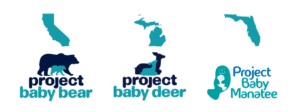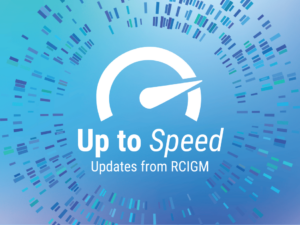Two years ago on Sept. 1, Michigan became the first state to cover rapid Whole Genome Sequencing under the state Medicaid program. This achievement came one year after the launch of Project Baby Deer — which itself followed in the footsteps of Project Baby Bear, a seminal pilot program led by Rady Children’s Institute for Genomic Medicine® (RCIGM).

Since then, several other states have opted to cover rWGS for critically ill infants. Earlier this summer, Florida and Arizona joined the mix. The Florida bill was developed following the successful completion of the Project Baby Manatee pilot project, spearheaded by Nicklaus Children’s Hospital in collaboration with RCIGM.
RCIGM’s extensive research has played a pivotal role in showing the clinical utility and efficacy of rWGS for critically ill infants and children. In addition to our research, we have dedicated resources to helping ensure equitable access to rWGS across the nation.
“Increasing families’ access to rWGS through public and private reimbursement is key to our mission: to prevent, diagnose, treat, and cure childhood diseases through genomic and systems medicine research,” says RCIGM’s Equitable Policy and Payer Engagement Manager Maddie Arenchild. “We do so both through advocacy work with state stakeholders, and education/awareness across our clinical network.”
Medicaid Coverage for rWGS:
The Florida and Arizona Medicaid programs each received budget appropriations starting FY24 (July 1, 2023), to support implementation of a benefit to cover inpatient rWGS for hospitalized infants and children. The two Medicaid programs are currently working through implementation specifications to make the benefit accessible to providers in these states.
Both Medicaid departments (AHCCCS in Arizona, AHCA in Florida) will reimburse separately from the DRG or bundled inpatient rate for provision of rWGS for patients meeting clinical criteria.
Florida policy:
- Will cover infants and children up to age 20 who are admitted to an intensive care unit or high acuity pediatric unit meeting clinical criteria.
- Andrew John Anderson benefit included in Florida State Budget Bill, SB2500.
Arizona policy:
- Will cover infants up to 1 year of age who are admitted to an intensive care unit or high acuity pediatric unit meeting clinical criteria.
- Three-year pilot program, meaning without additional action funding will expire after three years. Providers in Arizona should reach out to RCIGM to discuss strategy and supportive actions for making this benefit permanent at the end of the pilot term.
- Included in State Budget Bill, SB1720.
rWGS Reimbursement in More Than a Dozen States
These latest developments brings the number of states that have public and/or private coverage of rWGS to 13. The map below shows which states have coverage:
You can find more detail about the criteria for coverage the the various states on our Payer Policy and Advocacy page.
See also:
Arizona:
Florida:
- Diaby, V., Babcock, A., Huang, Y. et al. Real-world economic evaluation of prospective rapid whole-genome sequencing compared to a matched retrospective cohort of critically ill pediatric patients in the United States. Pharmacogenomics J 22, 223–229 (2022). https://doi.org/10.1038/s41397-022-00277-5
- Rep. Adam Anderson is celebrating allocating more than $3.2 million for the Andrew John Anderson Rapid Whole Genome Sequencing Program to benefit inpatient kids and young adults in high-acuity pediatric care units. (Florida Politics)

